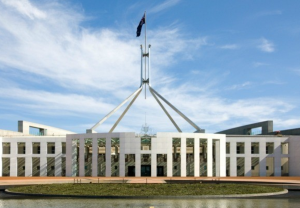I believe the national apologies delivered by Scott Morrison and Bill Shorten in federal parliament last week were an important step in our community response to psychological trauma associated with sexual abuse.
A most harmful aspect of such abuse is the severe invalidation of the abused individual. A sexually abused child is treated merely as an object for someone else’s sexual gratification. Their will does not come into it. They are treated as having no rights. So anything that validates them, however late in coming, can make a genuine difference.
Key messages for those who have suffered abuse to receive, as came through in the national apologies delivered last week, are “We believe you”. “This should not have happened to you”. “It’s not your fault”.
No doubt the long-term response to the apologies will depend on the extent to which any follow-up action, largely based on recommendations of the Royal Commission into Institutional Responses to Child Sexual Abuse, is perceived to be fair and effective in achieving a level of repair.
Among other things, the development of a National Museum recording the evidence and nature of sexual abuse that occurred in institutions across Australia may help ensure that such abuse and its harmful impact is highlighted in ways that make it harder to repeat.
As a psychologist I’ve seen hundreds of people who have suffered from childhood sexual abuse. It often had a devastating long-term impact on their mood, relationships, and physical health. Repeated childhood sexual abuse often impairs a person’s general capacity to find stability in their lives. The profound betrayal of trust by those who should have been safe authority figures often disrupts sufferers’ capacity to form healthy and secure attachments.

Photograph: Eric Ward
A particularly harsh complication is that it can leave sufferers with an unwarranted but lingering sense of unworthiness, guilt and shame. Children, especially up to the age of eight years, experience themselves as being very much at the centre of their world. If bad things happen, they will tend to view the harm as somehow being caused by themselves.
Furthermore, sexual predators typically take no responsibility for their harmful behaviour. This tends to leave the sense of responsibility and guilt for the wrongdoing with the child who suffered abuse. Many children who reported abuse were not believed, compounding their sense of unworthiness for receiving proper regard or caring.
It didn’t help that many people who hesitantly or gradually reported sexual abuse in psychiatric treatment settings were not believed. Often the clinicians who passed on such reports of childhood sexual abuse were not believed either.
From around 25 years ago one of the most fashionable psychiatric debates occurred around the dangers of “false memory syndrome”. This term was often used to suggest that naive clinicians were prone to implant false memories of sexual abuse by overly intrusive questioning.
Whereas it’s true that there is some risk of this, the strong emphasis on that risk was markedly out of proportion to the lack of emphasis on the burgeoning likely true reports of abuse. This distracted from doing more to address widespread sexual abuse. I still find it most disconcerting that the term, “false memory syndrome” was coined by an alleged perpetrator with no psychiatric qualifications.
Whilst working in public mental health settings, I encountered several psychiatric staff leaders who not only questioned reports of sexual abuse, but denied the existence of well-documented conditions, namely severe dissociative disorders, that were potential consequences of such abuse. The prolonged dismissiveness toward such conditions, which include symptoms of psychogenic amnesia, has been a severe blight on modern psychiatry.
It was much more difficult for the general community to recognise the severe impact of widespread sexual abuse when our mental health leaders were so actively deflecting away from it. Their motivation was seemingly not from any sinister attempt at cover-up, but from marked reluctance to consider the nature of people’s problems that couldn’t be treated with a pill. Complex trauma cannot be well treated with medication alone. It was often more convenient to misconstrue patients’ difficulties and symptoms in terms of psychosis or negative personality patterns.
Apart from this it is natural for people to shy away from the darkest aspects of human experience. At least in relation to sexual abuse, there is now greater acknowledgment. The national apologies are a spur to awareness and play some part in a community-based healing process.
Chris Mackey is a Fellow of The Australian Psychological Society and principal psychologist at Chris Mackey and Associates, Geelong
For more information on dissociative disorders click here.
Related
The Impact of Church Related Sexual Abuse
Psychological Reactions to Traumatic Accidents
What is Post-Traumatic Stress Disorder? Treating PTSD (video)

